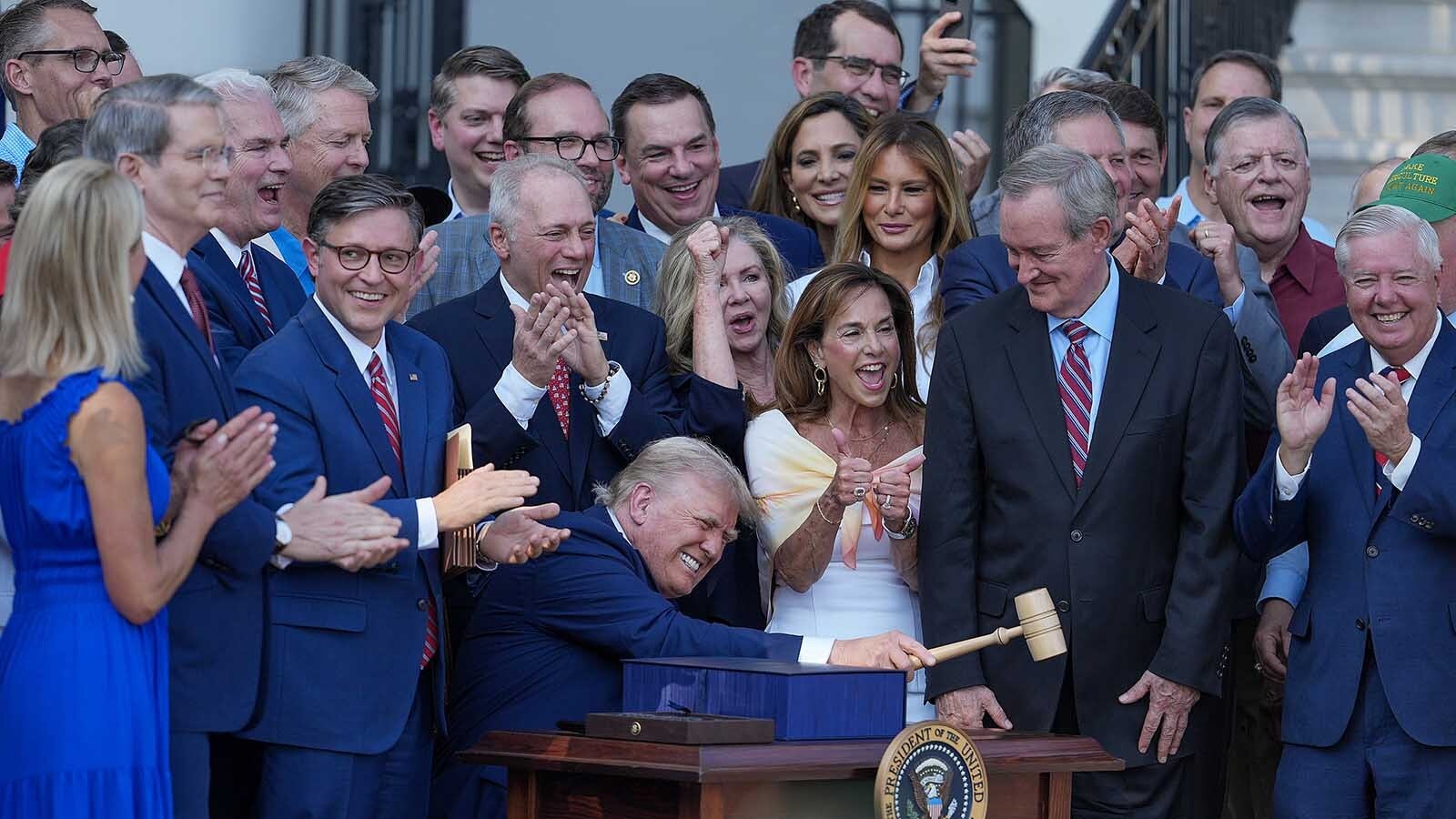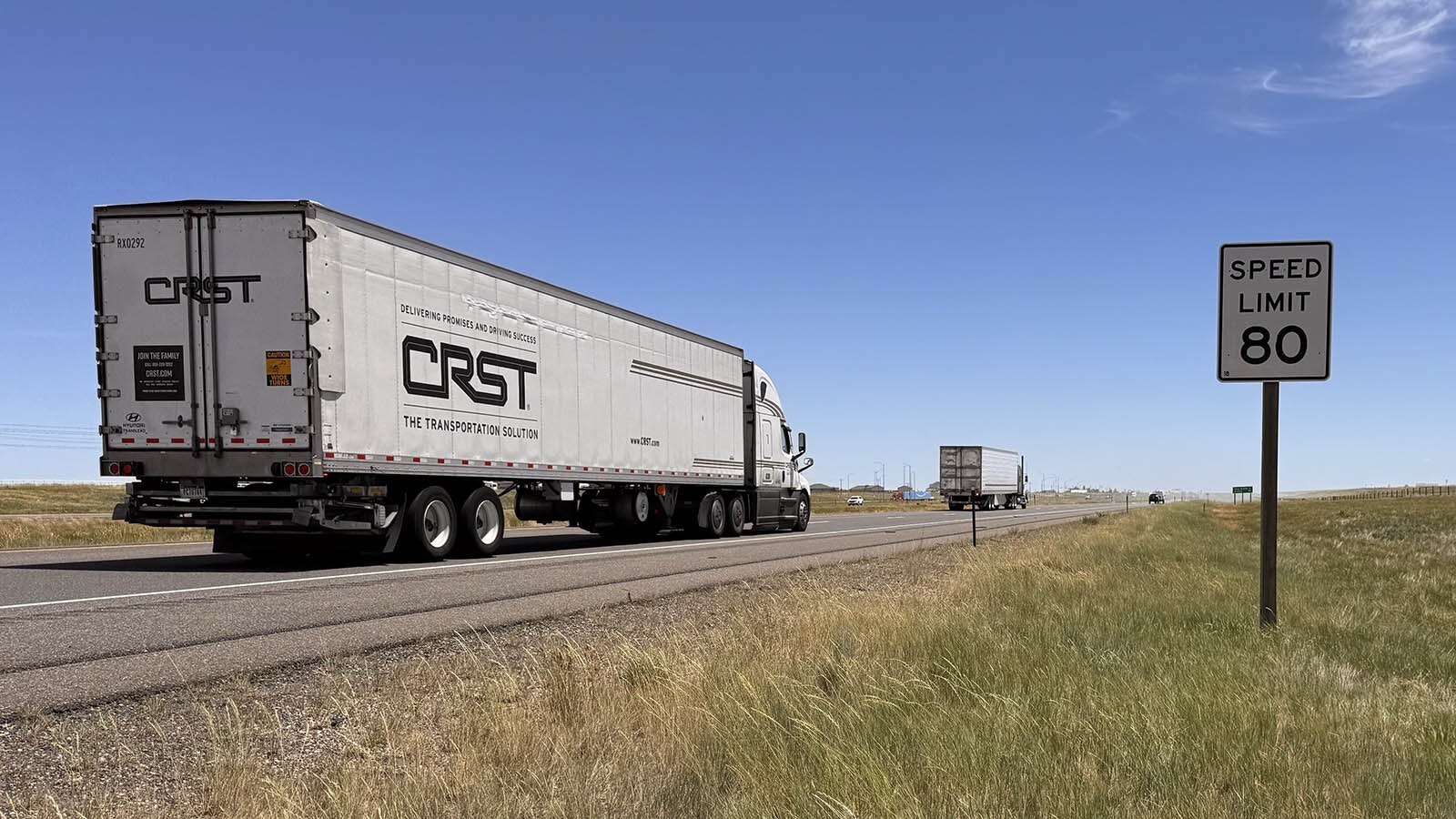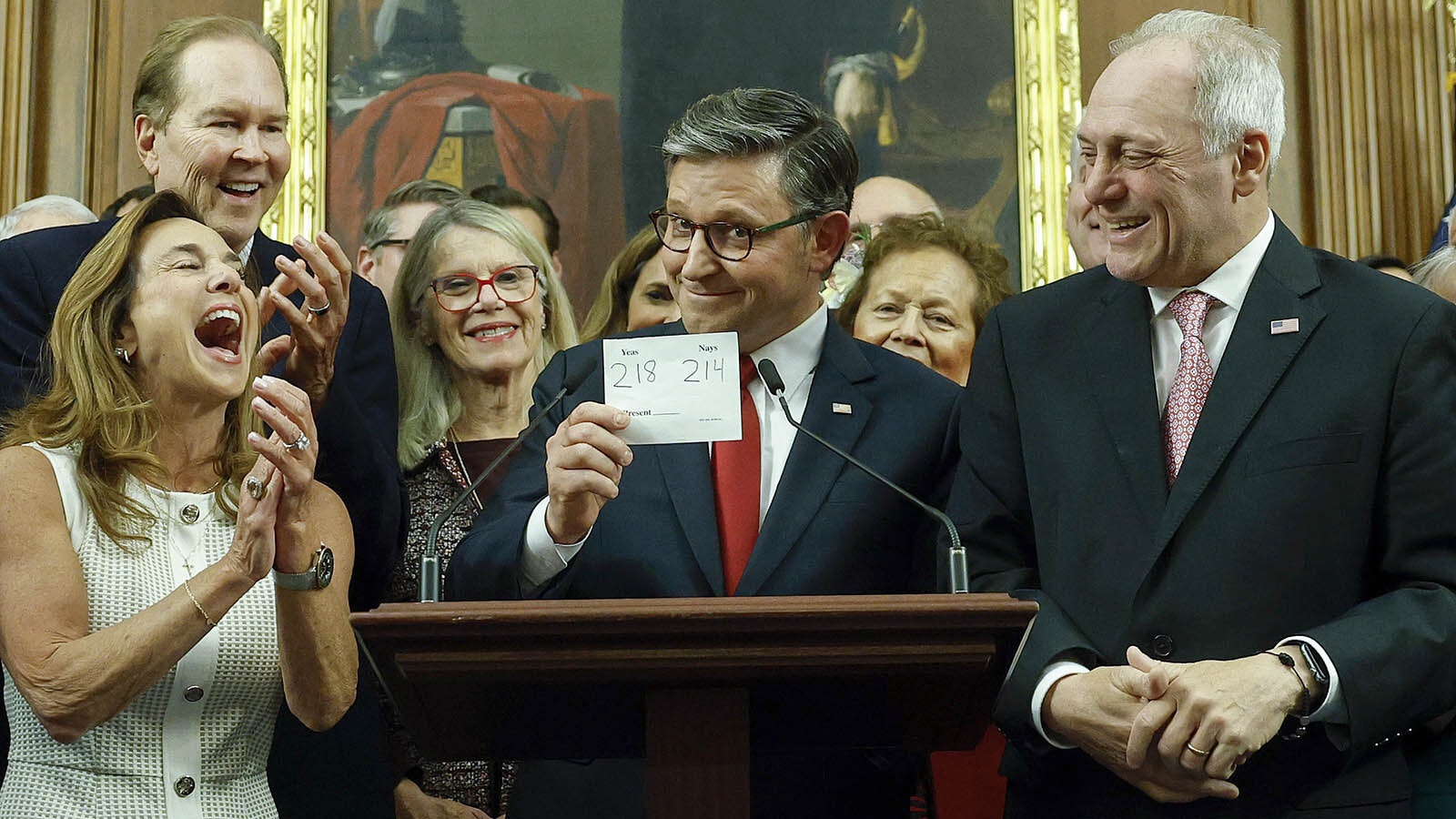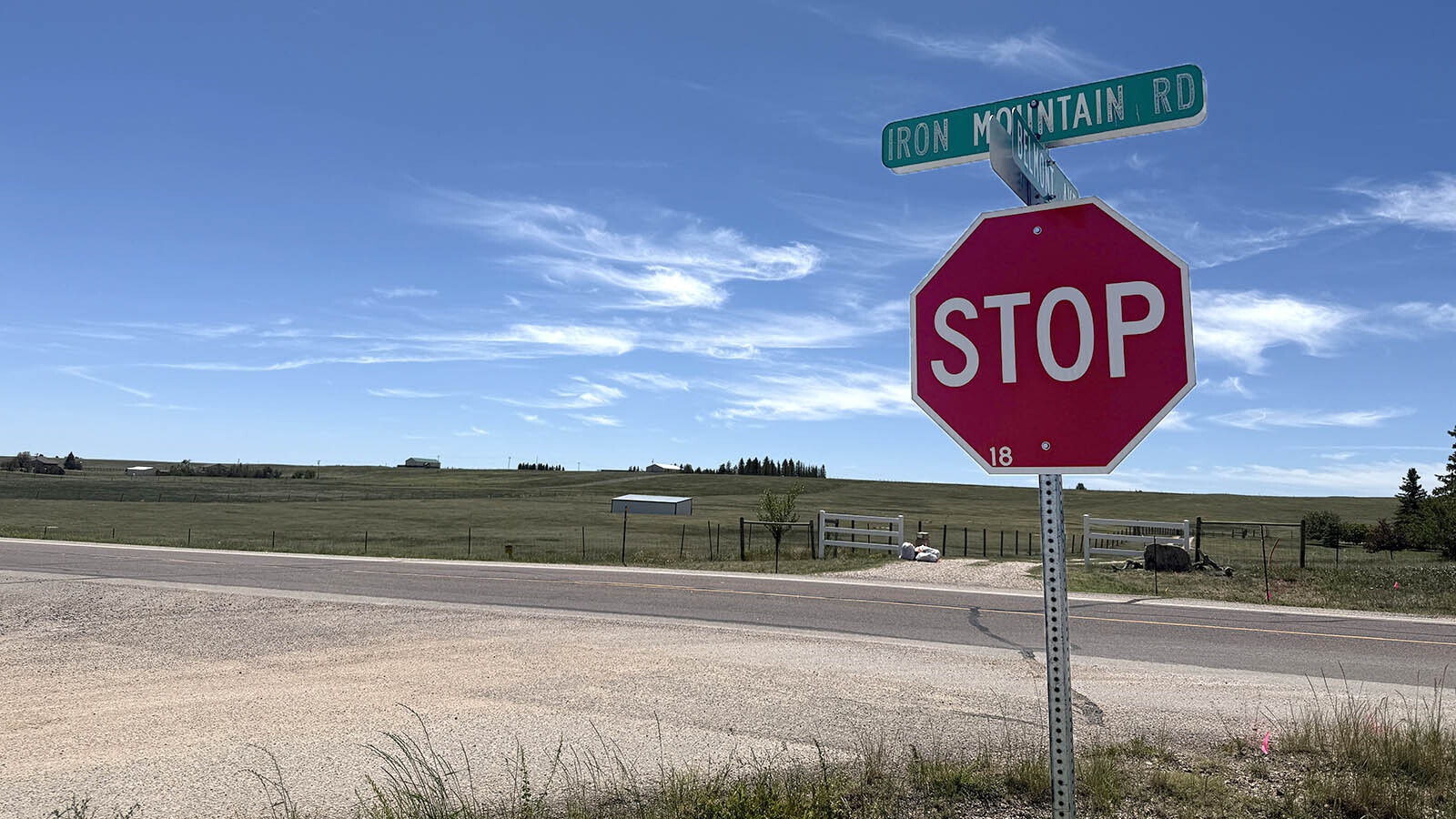Many state legislators in Wyoming say that aside from the biennial budget, property tax reform is the most important issue for this year’s legislative session.
By the end of the day Friday, the House Revenue Committee had advanced five property tax bills, cutting the stack of relief legislation it had started the week with by about half.
The Revenue Committee has been the starting point for all property tax bills coming out of the House. No property tax bills have been discussed in the Senate beyond initial introduction.
In addition to the handful of property tax relief measures the House Revenue killed this week, another handful failed to receive introduction in the House.
Four more property tax reform bills are still alive In the Senate.
5% Cap Succeeds
Drawing the most attention from the Revenue Committee was House Bill 45, which would put a 5% cap on year-to-year residential property tax increases in Wyoming.
The committee unanimously passed HB 45 on Friday, despite some from the public arguing that it doesn’t go far enough.
It’s unknown how much of a fiscal impact this bill will have on Wyoming as the 2024 property tax valuations are not yet complete, but based on the revenue generated by 2023 taxes, it would cut taxes by around $50 million.
An amendment was added to the bill Friday that expands the cap to cover residential land in addition to single-family structures. It will be up to the House to decide whether it wants to support the amendment.
The residential cap portion of the bill is set to go into effect for the current tax year, while the land portion would go into effect for 2025. Because of the extremely quick turnaround demanded by the bill, Rep. Barry Crago, R-Buffalo, told Cowboy State Daily that if HB 45 isn’t signed into law by the governor by March 1, it can’t be implemented this year.
The committee also added an amendment to HB 45 on Friday guaranteeing the tax benefits will still continue even if a home is passed down through a trust or inheritance.
The Wyoming County Assessors Association supports the bill and says it can be implemented for the upcoming property tax season.
“We’re in unanimous agreement this is the best short-term immediate relief can give people outside the property tax relief program,” said Converse County Assessor Dixie Huxtable on Thursday.
3% And Beyond Cap Dies
Defeated on a 6-3 vote by the committee was House Bill 127, a much more wide-reaching property tax cap bill favored by the Wyoming Freedom Caucus. HB 127, sponsored by Rep. Tony Locke, R-Casper, would have instituted a 3% property tax cap on all forms of property in Wyoming and reverted property tax rates back to 2019 assessment values.
“What we have on the table isn’t relief,” Locke said of HB 45 on Friday. “A large element of my constituents are hurting.”
HB 127, conversely, would have an estimated $260 million impact to the state in its first year, a major point of contention for most of those who spoke against.
Gillette resident George Dunlap said Thursday these people need to have an attitude adjustment.
“I think it’s maybe time that the Legislate get a little bit different attitude,” he said. “That’s a $260 million increase for the people that live in the state of Wyoming. It’s not a decrease. It’s a decrease for the people that are spending money for the state, but it’s an increase for the people that we’re supposed to represent.”
Like HB 45, it would go into effect for the current tax year as soon as Gov. Mark Gordon signed it into law.
Jeremiah Rieman, executive director of the Wyoming County Commissioners Association, warned of the massive impact HB 127 could have for smaller counties like Niobraba, which operates on a much smaller budget than other counties and seen much more modest property tax increases.
From 2018-2023, Rieman said Niobrara saw a total revenue increase from property taxes of $43,000.
HB 127 drew strong pushback from Wyoming’s county assessors and Wyoming Department of Revenue Director Brenda Henson, who argued that the “rollback” portion bringing assessment levels back to 2019 would be impossible for assessors to implement for the current tax year this spring.
“Any mechanism or policy or law to go back to a prior year is going to be burdensome,” Henson said Thursday.
Rep. John Bear, R-Gillette, disagreed.
“It will be challenging for that first person that develops the query and decides how it will be done,” Bear said. “Once calculated and figured out, passed off to the 23 assessors, this bill is actually simplified.”
Those like Bear and Locke who argued in favor of the rollback said any bill that lacks this feature will create taxation based on post-COVID-19 inflated figures.
“We’re at a time where we need to be looking out for the taxpayer,” Bear said. “The taxpayer is the one bringing the issue to us. As elected officials, it’s important we take on the challenge and try to do what we can for the taxpayer.”
Despite Locke’s bill going down, Bear said he remains optimistic that elements of his bill can be inserted into HB 45, which he said he plans to support.
Longtime Homeowners Rewarded
Another bill passed by the Revenue Committee would provide a tax exemption for longtime homeowners. House Bill 3 would put a 50% reduction on the assessed value of residential property for homeowners who are at least 65 years old and have owned their property for 30 years or more.
A criteria-based homestead exemption bill that will expire in 2027 also passed.
Also passed Friday was a property tax trigger bill sponsored by Rep. Lane Allred, R-Afton.
House Bill 103 would go into effect only if a constitutional amendment is passed by voters this fall to create a new taxation class for residential real property. HB 103 would then lower the assessment rate from 9.5% to 8.3% on residential property.
The committee also passed House Bill 134, which increases the amount of taxes that can be deferred in the Department of Revenue’s tax deferral program, revises the calculation of interest, and makes deferral of taxes contingent on the homeowner’s availability of funds, for that program.
Other Bills Go Down
Locke also brought House Bill 133, legislation that would have reduced total property taxes for the 2024 tax year by 16.67% on industrial properties, and 33.33% on all other property. The assessors similarly opposed this bill.
One other bill that died Friday would have expanded Wyoming’s Property Tax Refund Program to higher income levels.
On Monday, the committee will discuss one more bill. House Bill 203 would implement a property tax exemption on single-family structures. The loss of this revenue would be replaced by an increase to the state’s sales and use tax.
Leo Wolfson can be reached at leo@cowboystatedaily.com.





